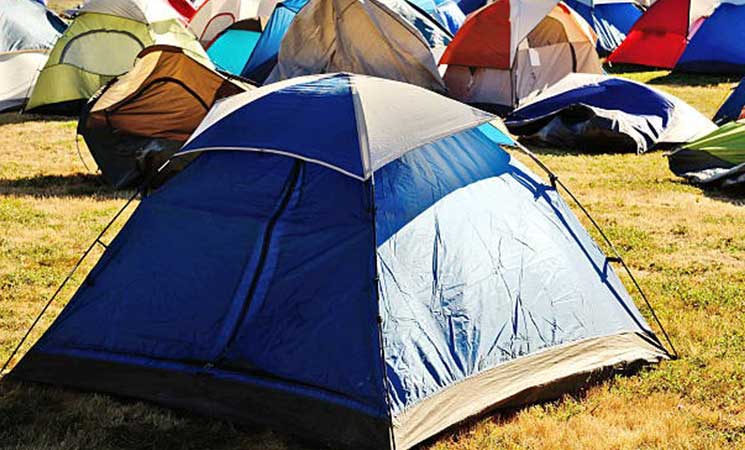Starting a summer camp from scratch is both an exciting and challenging journey. Whether your passion is creating a space for kids to explore nature, get active, or dive into creative activities, building a camp that runs smoothly and successfully requires careful planning, creativity, and an understanding of the logistics involved. If you’re ready to embark on this rewarding adventure, this guide is here to help you Build a Summer Camp that thrives season after season.
Let’s break down the essential steps and strategies that will not only help you launch your camp but ensure it becomes a well-loved and sustainable operation for years to come.
1. Define Your Camp’s Mission and Vision
The foundation of any successful camp starts with a clear mission and vision. What is the purpose of your camp? What unique experiences are you offering? Before diving into the practicalities, take time to outline what makes your camp special. Are you focusing on outdoor adventures, arts and crafts, STEM learning, or a combination of activities?
Your camp’s mission will guide every decision you make, from programming to marketing. For example, if your mission is to help children build leadership skills through team-building activities, then the structure of your camp should reflect this goal. It’s important to establish a clear vision so potential campers and their families understand the values your camp stands for.
2. Conduct Market Research
Before you get too far into the process, you’ll want to understand the market. Knowing your competition and the demand in your area is key to making informed decisions about your camp’s offerings and pricing.
Start by researching other camps in your region. What types of camps are popular? Is there a gap in the market for a specific type of camp that you could fill? For instance, if your area already has several sports camps, you might consider offering something different, like an arts-focused camp or a nature-based adventure camp.
Additionally, talk to parents and kids to learn more about what they want in a camp experience. What activities are most appealing to them? How far are they willing to travel for a camp? This information will help you Build a Summer Camp that resonates with your target audience.
3. Create a Solid Business Plan
Once you have a vision for your camp and a sense of the market, it’s time to put together a business plan. This will be the roadmap for your camp’s development, helping you stay organized and on track.
Your business plan should include:
Mission Statement: A clear explanation of your camp’s purpose and goals.
Target Market: A description of the demographic you plan to serve (e.g., age range, interests, location).
Budget: A detailed breakdown of your startup costs, ongoing expenses, and potential revenue streams. This will include costs for facilities, staff, marketing, insurance, supplies, and other essentials.
Staffing Plan: How many staff members will you need? What qualifications should they have?
Marketing Strategy: How will you attract campers? Think about your website, social media presence, and local outreach efforts.
Timeline: A realistic schedule for getting everything up and running.
Having a detailed business plan not only helps you stay focused, but it also makes it easier to secure funding or partnerships if necessary.
4. Find the Right Location
One of the most important decisions you’ll make when you Build a Summer Camp is choosing the right location. Your camp’s setting will play a huge role in shaping the camper experience, so it’s essential to find a spot that fits your camp’s mission.
If your camp focuses on outdoor adventure, you’ll want a location with plenty of natural resources—think forests, lakes, or open fields. If your camp leans more towards arts or science, you might prioritize a space with large indoor facilities.
Consider factors like accessibility (How far will families need to travel?), safety (Is the area secure and free from hazards?), and amenities (Will you need running water, electricity, or indoor lodging?). Many camps rent facilities such as schools, community centers, or churches during the off-season, but if you plan to build your own space, make sure your business plan reflects the costs involved.
5. Develop a Comprehensive Program
Your camp program is the heart of the camper experience. It’s what keeps kids coming back year after year. The key to building a successful program is variety and structure. Offer a wide range of activities that cater to different interests and skill levels while maintaining a cohesive schedule that balances free time, group activities, and rest periods.
Team-building activities are an excellent addition to any camp program. They not only help campers make friends and feel comfortable, but they also develop valuable skills like communication, collaboration, and leadership. Whether you’re running a sports camp or an arts camp, integrating team-based challenges can foster a sense of community and belonging.
Ensure your program has a balance of physical, mental, and social activities. For example, morning sessions could be dedicated to active pursuits like hiking or sports, while afternoons focus on creative or educational workshops. The more engaging and well-rounded your program, the more likely you are to attract repeat campers.
6. Build a Strong Team
Your staff will play a critical role in the success of your camp. Hiring the right people is essential to creating a safe, fun, and supportive environment for campers. Look for counselors and instructors who are passionate, experienced, and aligned with your camp’s mission.
In addition to relevant experience, staff should be trained in areas like first aid, conflict resolution, and child development. A well-trained team will ensure that your camp runs smoothly and that any issues that arise are handled professionally.
Pre-camp training sessions are a great way to prepare your staff for the season ahead. Use this time to go over camp policies, review the schedule, and build team camaraderie among your counselors.
7. Market Your Camp Effectively
Marketing is crucial when it comes to filling up your camp each summer. Having a professional, easy-to-navigate website is the first step to attracting campers. Your site should clearly communicate what makes your camp special, include registration information, and provide plenty of visuals—photos and videos from past camp sessions can be very persuasive.
In addition to your website, social media is an invaluable tool for marketing your camp. Platforms like Instagram and Facebook allow you to share behind-the-scenes glimpses of camp life, showcase camper testimonials, and interact with parents and prospective campers.
Consider offering early-bird discounts or referral bonuses to encourage families to register early. Word of mouth can be incredibly powerful in the camp industry, so make sure you’re encouraging current families to spread the word.
8. Prioritize Safety and Logistics
When parents send their kids to camp, they want to feel confident that they’re in a safe, well-organized environment. As you Build a Summer Camp, make safety a top priority by developing thorough protocols for everything from medical emergencies to handling inclement weather.
Ensure that your camp meets all local safety regulations, and invest in proper insurance coverage. Have clear guidelines for staff on how to handle injuries, allergies, or other health concerns. In addition, make sure your facilities and equipment are regularly maintained and in good condition.
Logistics also play a huge role in the camp experience. From drop-off and pick-up procedures to meal planning, the more organized you are, the smoother your camp will run.
Conclusion
Building a successful summer camp from the ground up requires careful planning, passion, and dedication. By defining your mission, conducting market research, developing a solid business plan, and creating a dynamic program, you can create a camp that not only attracts campers but keeps them coming back year after year. Focusing on effective Build a Summer Camp strategies will ensure your camp becomes a staple in the community and a cherished experience for all who attend.
FAQs
1. How do I start building a summer camp?
Begin by defining your camp’s mission and vision. Conduct market research to understand your target audience, develop a business plan, and find the right location. Once you have these in place, focus on creating a dynamic program and hiring qualified staff.
2. What should I include in my camp’s business plan?
Your business plan should include a mission statement, target market analysis, budget, staffing plan, marketing strategy, and a timeline for development. It’s essential to have a detailed roadmap for both short-term and long-term goals.
3. How can I attract more campers?
A strong marketing strategy is key. Use social media, your website, and word of mouth to spread the word about your camp. Offering early registration discounts and sharing testimonials from past campers can also encourage sign-ups.
4. What safety measures should I consider when building a camp?
Ensure your camp meets all local safety regulations, and have protocols for medical emergencies, injuries, and allergies. Train your staff in first aid and conflict resolution, and maintain your facilities and equipment regularly.
5. How important is staff training for running a successful camp?
Staff training is critical. Your counselors and instructors are the heart of your camp. Make sure they are not only well-qualified but also aligned with your camp’s mission and trained in safety protocols and camper engagement.













